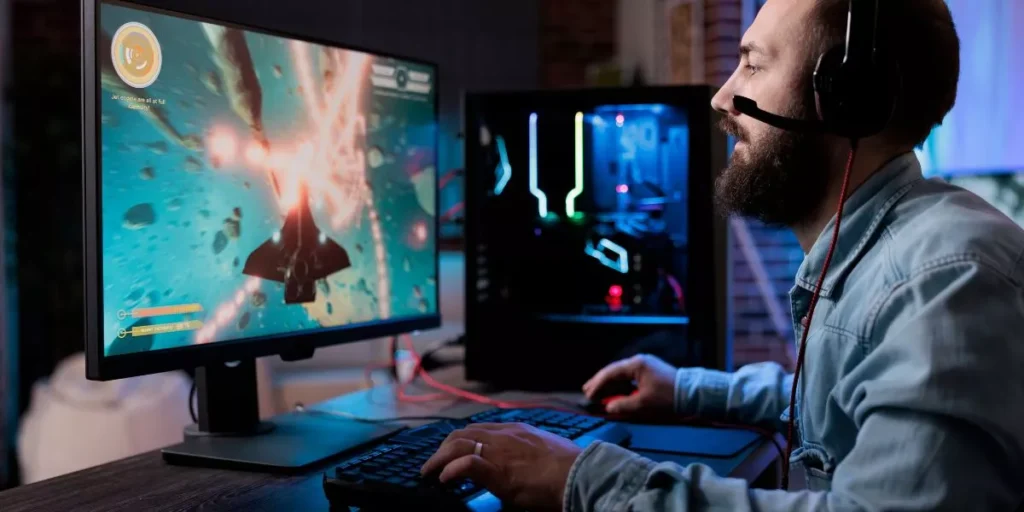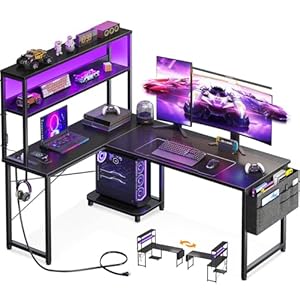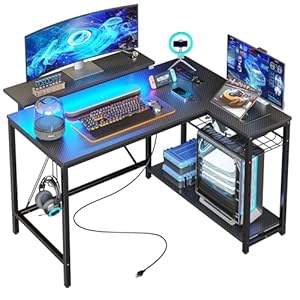
When deciding between a gaming laptop and a desktop PC, you’re faced with a crucial choice that hinges on various factors. Both options have their strengths and weaknesses, from performance capabilities to customization potential. The question of which one to choose ultimately boils down to your specific needs and priorities in gaming. So, before making your decision, consider how each device aligns with your gaming habits and preferences.
Performance Differences
When it comes to performance differences between a gaming laptop and a desktop PC, the latter often outshines the former in raw power and customization options. Desktop PCs typically offer more powerful hardware components such as CPUs, GPUs, and cooling systems due to their larger size and better cooling capabilities. This results in desktops being able to handle more demanding games and applications with ease, providing a smoother and more immersive gaming experience.
Moreover, desktop PCs allow for extensive customization options. You can easily upgrade individual components like the graphics card, RAM, or storage to keep up with the latest advancements in technology. This flexibility ensures that your desktop PC can adapt to your changing needs and preferences over time, making it a more future-proof investment compared to a gaming laptop.
Portability and Convenience
Considering the lifestyle of modern gamers, the aspect of portability and convenience plays a significant role in the choice between a gaming laptop and a desktop PC. Gaming laptops are designed for on-the-go gaming, allowing you to take your gaming setup anywhere with ease. Whether you’re heading to a friend’s house for a gaming session or traveling for an esports competition, the portability of a gaming laptop offers unparalleled convenience.
Desktop PCs, on the other hand, are less portable and often require a dedicated space for setup. Moving a desktop PC can be cumbersome due to its size and the need to disconnect and reconnect multiple components. This lack of portability may limit where and when you can enjoy your gaming experience.
If you value gaming on the move or need the flexibility to game in various locations, a gaming laptop provides the convenience you need. However, if portability isn’t a priority and you prefer a stationary setup with potential for customization and upgrades, a desktop PC might be the better choice for your gaming needs.
Customization and Upgrade Options
For gamers looking to personalize their gaming experience and stay up to date with the latest technology, the customization and upgrade options available for gaming laptops and desktop PCs are key factors to consider. When it comes to customization, desktop PCs have the upper hand. They offer more flexibility in terms of upgrading components such as the graphics card, processor, and storage. With a desktop PC, you can easily swap out parts to keep up with evolving technology and improve performance over time.
On the other hand, gaming laptops have limited upgrade options compared to desktop PCs. While some laptops may allow for upgrades like additional RAM or storage, the ability to swap out major components is often restricted due to their compact design. However, some high-end gaming laptops do offer customizable features like RGB lighting, keyboard layouts, and overclocking options to enhance the gaming experience without the need for extensive hardware changes.
Ultimately, the decision between a gaming laptop and a desktop PC depends on your priorities. If customization and future upgrades are essential to you, a desktop PC provides more flexibility in this regard.
Cost Considerations
To make an informed choice between a gaming laptop and a desktop PC, it’s important to factor in the cost considerations associated with each option. Gaming laptops generally come at a higher price point compared to desktop PCs with similar specifications. The compact design, portability, and specialized components of gaming laptops contribute to their elevated cost. If you prioritize mobility and space-saving features, investing in a gaming laptop might be the way to go, despite the higher upfront expense.
On the other hand, desktop PCs offer more flexibility for cost-conscious gamers. Building a desktop PC allows you to select individual components based on your budget and upgrade them over time as needed. This scalability can potentially save you money in the long run, as you can replace or expand parts without having to buy an entirely new system. When considering cost, it’s essential to weigh your preferences for mobility, customization, and long-term financial investment to determine whether a gaming laptop or desktop PC aligns best with your needs.
Gaming














